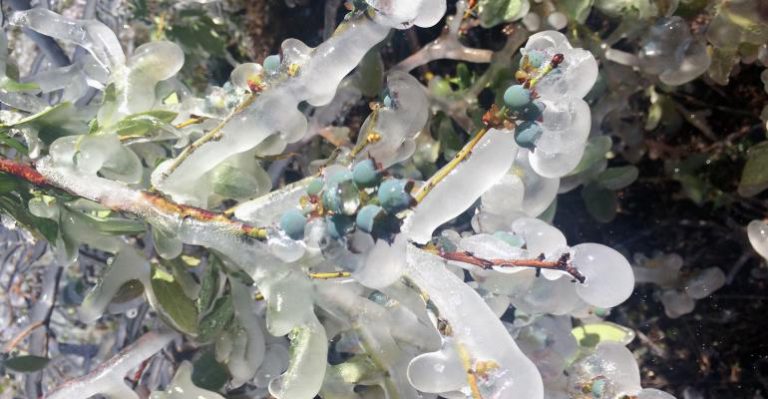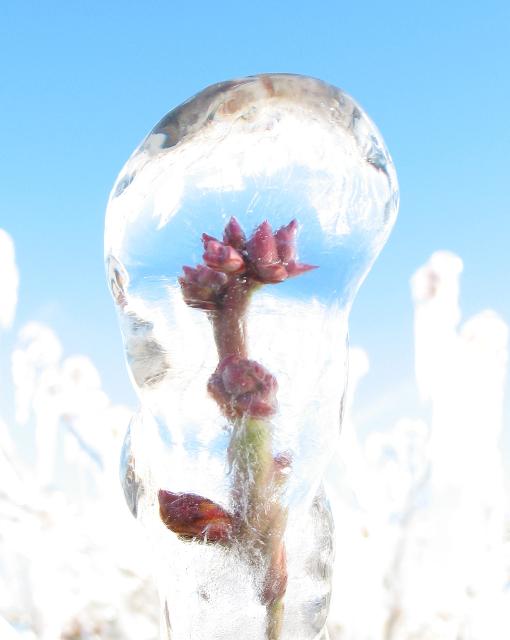By Clint Thompson
The impact the March 13 freeze event had on Georgia’s blueberry crop might be worse than expected.


Not only did the sub-freezing temperatures devastate the berries already on the bushes, they led to diseases and fruit quality issues, says Jonathan Oliver, University of Georgia (UGA) assistant professor and small fruits pathologist.
“I think a lot of the effects of the freeze are still lingering as far as the diseases we are seeing and the fruit quality issues we are having. Some of the fruit that was saved by freeze protection may have still had some damage, and we’re seeing some of that with a little bit of fruit quality problems in a few locations,” Oliver said. “These are fields that we thought had otherwise survived the freeze that maybe had some damage to the fruit internally that we’re seeing now at harvest time.”
Temperatures were as low as 26 degrees Fahrenheit in Alma, Georgia, on March 13, according to the University of Georgia Weather Network. Temperatures also dropped to 26 degrees in Baxley and 28 degrees in Homerville; both are located in two of Georgia’s top blueberry-producing counties – Appling and Clinch.

The freeze event timing could not have been much worse for growers whose crop was on the cusp of being ready for harvest.
“It was terrible for blueberries for certain. The berries were forming. There were green berries on the highbush,” Oliver said. “Even the rabbiteyes had bloomed out, so we got a lot of damage to rabbiteye blooms. There are certain field locations for rabbiteyes that got wiped out or hurt pretty bad as a result of the freeze. The green fruit from the highbush is super susceptible when it gets that cold. That was a problem for sure.
“A lot of growers weren’t able to put out enough ice to protect those berries, even ones we thought were protected at the time. We still see a few places where they’re not coming out so well.”
More than 54 million pounds of blueberries were lost when temperatures dropped into the 20s on that fateful Sunday morning.










